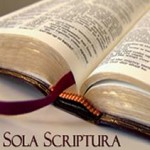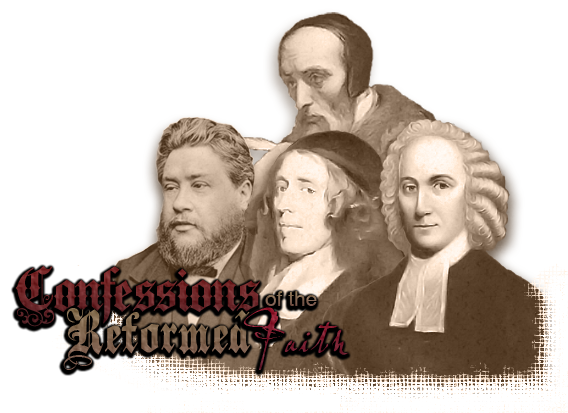 The Martin Luther was already in hot water with the pope after having posted his Ninety-Five Theses the previous year. But he made things considerably worse for himself when, in a debate with Dominican Cardinal Cajetan, he asserted that the pope could and had erred. He turned up the heat considerably in the summer of 1519 when he confessed to Johannes von Eck that not only could popes and councils err, they had erred grievously in condemning John Huss.
The Martin Luther was already in hot water with the pope after having posted his Ninety-Five Theses the previous year. But he made things considerably worse for himself when, in a debate with Dominican Cardinal Cajetan, he asserted that the pope could and had erred. He turned up the heat considerably in the summer of 1519 when he confessed to Johannes von Eck that not only could popes and councils err, they had erred grievously in condemning John Huss.
So was born the Protestant doctrine of sola Scriptura. It was not that Luther despised church authority. He merely recognized that Scripture alone was inerrant and infallible, and therefore only Scripture possessed absolute normative authority. This principle is codified in several sixteenth century Reformed confessions which R. C. Sproul excerpts in the first chapter of his book, Scripture Alone.
The Theses of Berne (1528):
The church of Christ makes no laws or commandments without God’s Word. Hence all human traditions, which are called ecclesiastical commandments, are binding upon us only in so far as they are based and commanded by God’s Word. (Sec. 2)
The Geneva Confession (1536):
First we affirm that we desire to follow Scripture alone as a rule of faith and religion, without mixing it with any other things which might be devised by the opinion of men apart from the Word of God, and without wishing to accept for our spiritual government any other doctrine than what is conveyed to us by the same Word of God, and without addition or diminution, according to the command of our Lord. (Sec. 1)
The French Confession of Faith (1559):
We believe that the Word contained in these books has proceeded from God, and receives itls authority from God alone, and not from men. And inasmuch as is the rule of all truth, containing all that is necessary for the service of God and for our salvation it is not lawful for men, even for angels, to add to it, to take away from it, or to change it. Whence it follows that no authority whether of antiquity, or custom or numbers, or human wisdom, or judgments, or proclamations, or edicts, or decrees, or councils or visions, or miracles, should be opposed to these holy Scriptures, but on the contrary, all things should be examined, regulated and reformed according to them. (Art. 5)
The Belgic Confession (1561):
We receive all these books, and these only as holy and confirmation of our faith; believing, without any doubt, all things contained in them, not so much because the church receives, and approves them as such, but more especially because the Holy Ghost witnessed in our hearts that they are from God, whereof they carry the evidence in themselves (Art. 5).
Therefore we reject with all our hearts whatsoever doth not agree with this infallible rule (Art. 7).
The Second Helvic Confession (1566):
Therefore, we do not admit any other judge that Christ himself, who proclaims by the Holy Scriptures what is true, what is false, what is to be followed, or what is to be avoided (chap. 2).
— R. C. Sproul, Scripture Alone (P&R Publishing Company, 2005), 18–20.

 Is the Coptic Orthodox Church a cult?
Is the Coptic Orthodox Church a cult? For those who would like to examine the differences between the 1646 Westminster Confession of Faith and the 1689 London Baptist Confession of Faith, a very helpful tabular comparison can be found
For those who would like to examine the differences between the 1646 Westminster Confession of Faith and the 1689 London Baptist Confession of Faith, a very helpful tabular comparison can be found